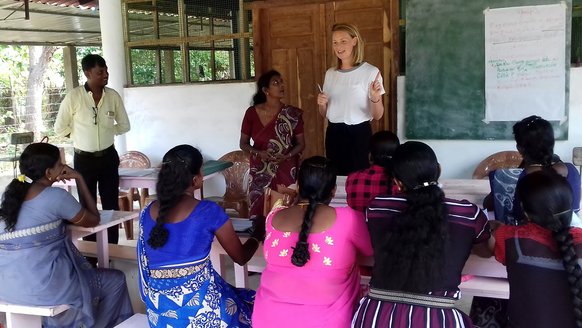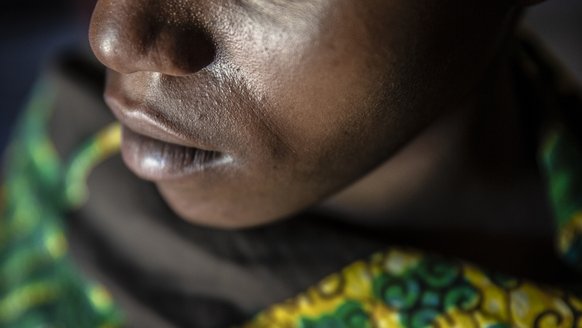How We Work to Combat Stigmatisation
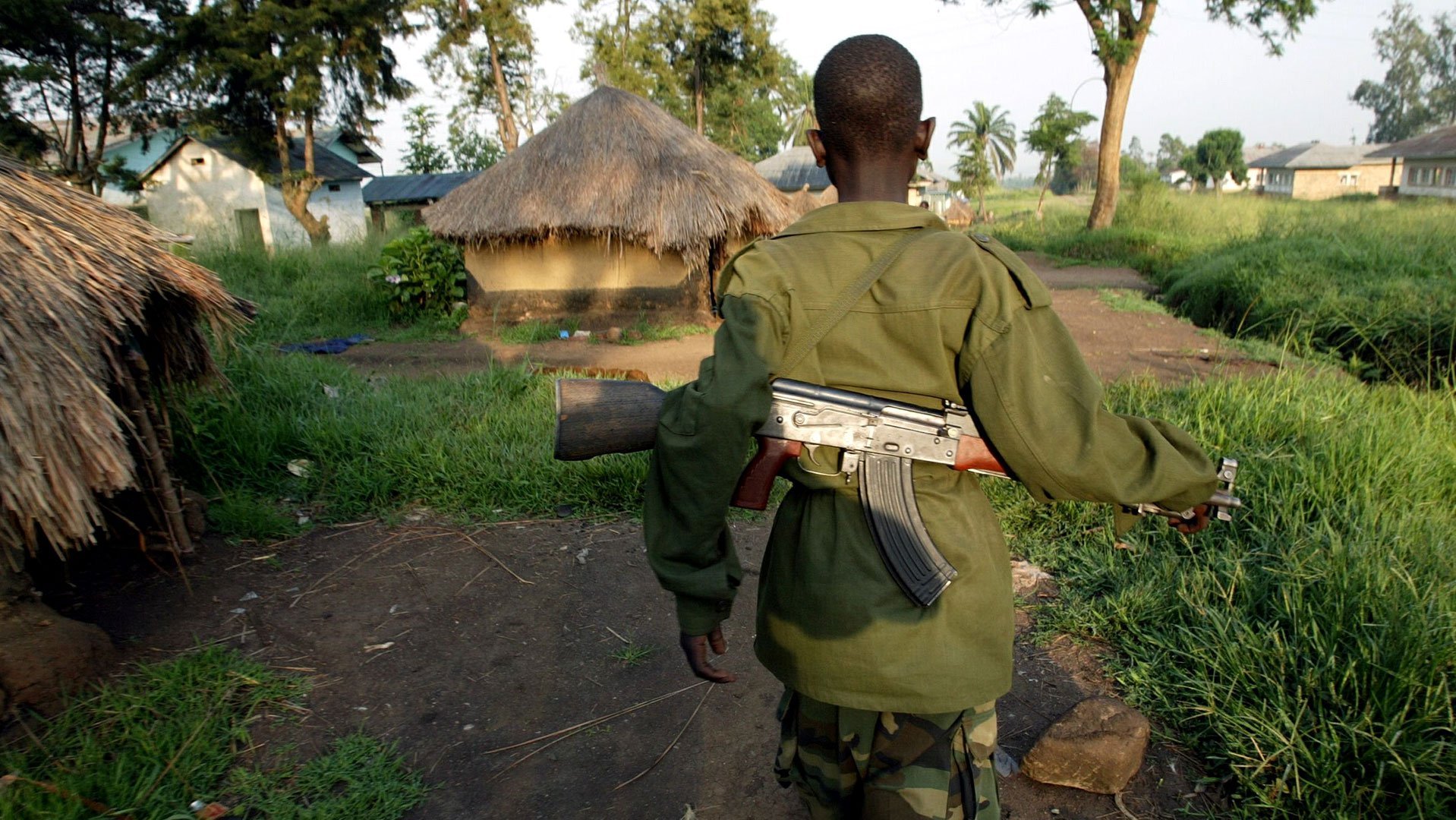
Child patrolling close to Bunia in the Democratic Republic of the Congo
Photo: Reuters/Jacky Naegelen
Returning after War
War Child has supported children affected by armed conflict for more than two decades. The emotional and material challenges children face as a result of violence and displacement are well documented. Yet the problems children face reintegrating into society following an armed conflict receive less attention.
It is not uncommon for children - or their caregivers - to encounter discrimination both during and after an armed conflict. This discrimination can be directed at children who were forced to fight. Those children born of wartime sexual violence. Children who are members of a particular ethnic group.
The drivers of this discrimination are complex and varied - but they all result in what we term the ‘social stigmatisation’ of children and youth.
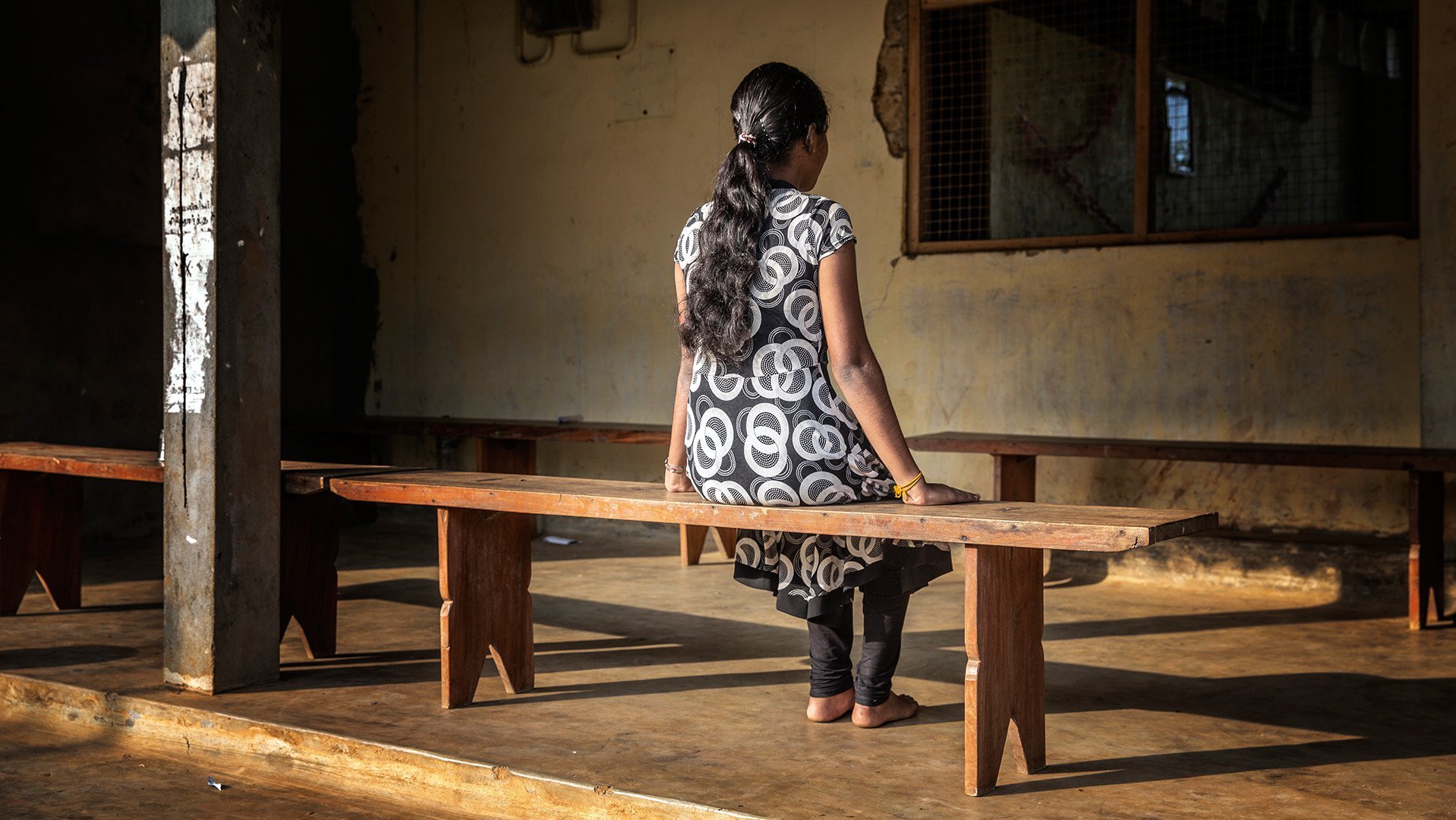
Children born of wartime sexual violence may experience being stigmatized from birth
Photo: Jeppe Schilder
What is Stigma?
Stigma is a negative bias against a group or individual based on social norms. And stigma can make itself felt in a variety of ways - from seemingly innocent jokes to widespread discrimination against groups and individuals.
Stigma can be devastating for children affected by armed conflict. These children risk being made scapegoats and can be excluded from or rejected by their community - and sometimes even by their family. The psychosocial wellbeing of these children can be compromised. Access to local services such as health care and education is frequently denied - with all the negative consequences that implies.
Support for Stigmatized Children
To support the reintegration of children and their families into society following an armed conflict we are developing a Stigma Reduction Approach. This approach consists of three phases and will be made up of strategic mechanisms that serve to address various drivers or stigmatisation and increase participation and access to care. Watch the video above to find out more.
We will further develop and test this approach in the coming years. We will undertake these efforts with enormous care - stigmatisation is a sensitive topic and attempts to address it can also have negative consequences. That’s why we will work to thoroughly evaluate our approach.
Preliminary field research has already been undertaken in DR Congo - and we will take on board lessons learned before we roll out the tool more broadly. These efforts will - we hope - enable stigmatised children to once again become a part of their communities.
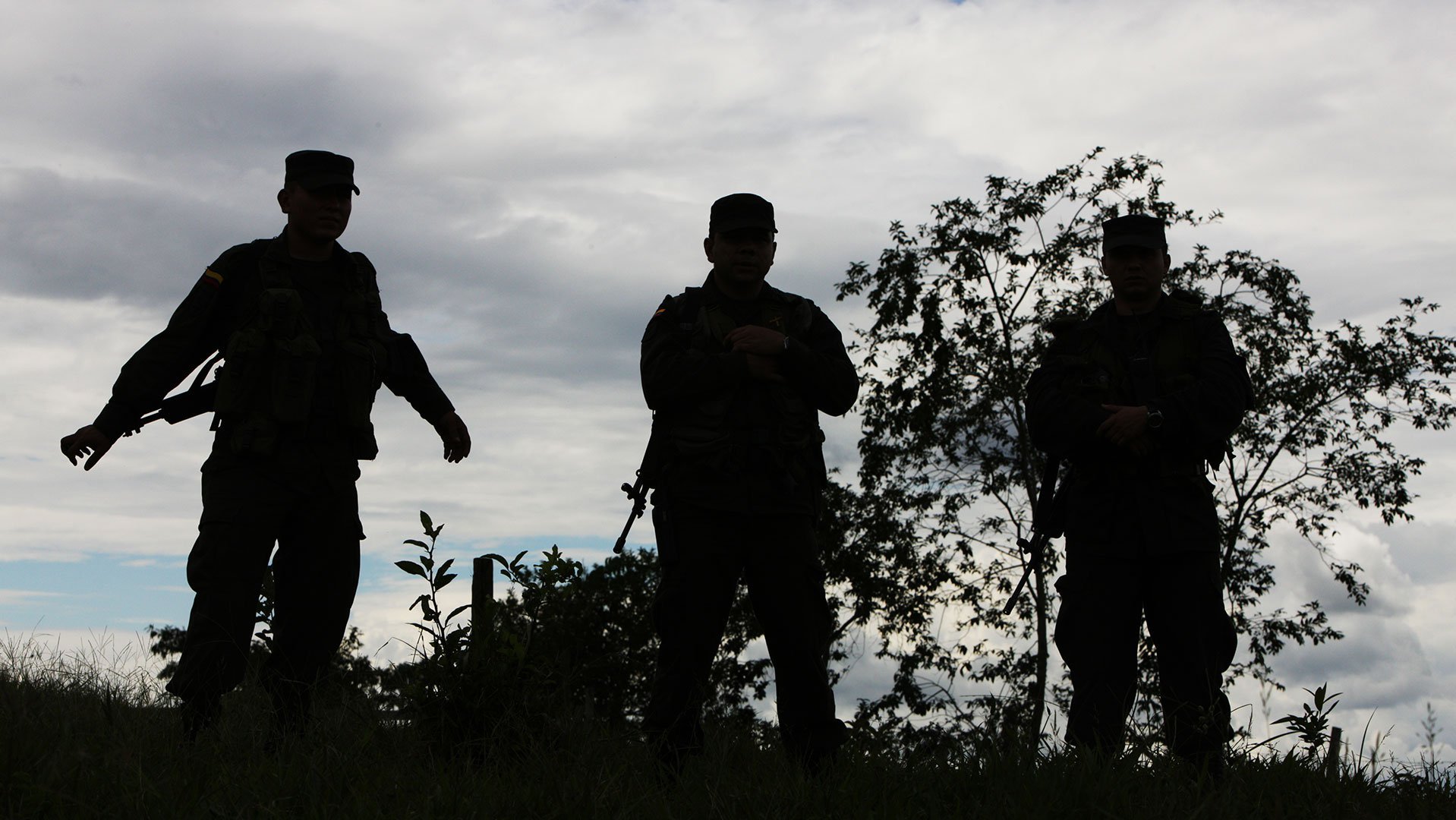
During his visit to Colombia, our ambassador Marco Borsato took this photo of a group of young Colombians
Photo: Marco Borsato
